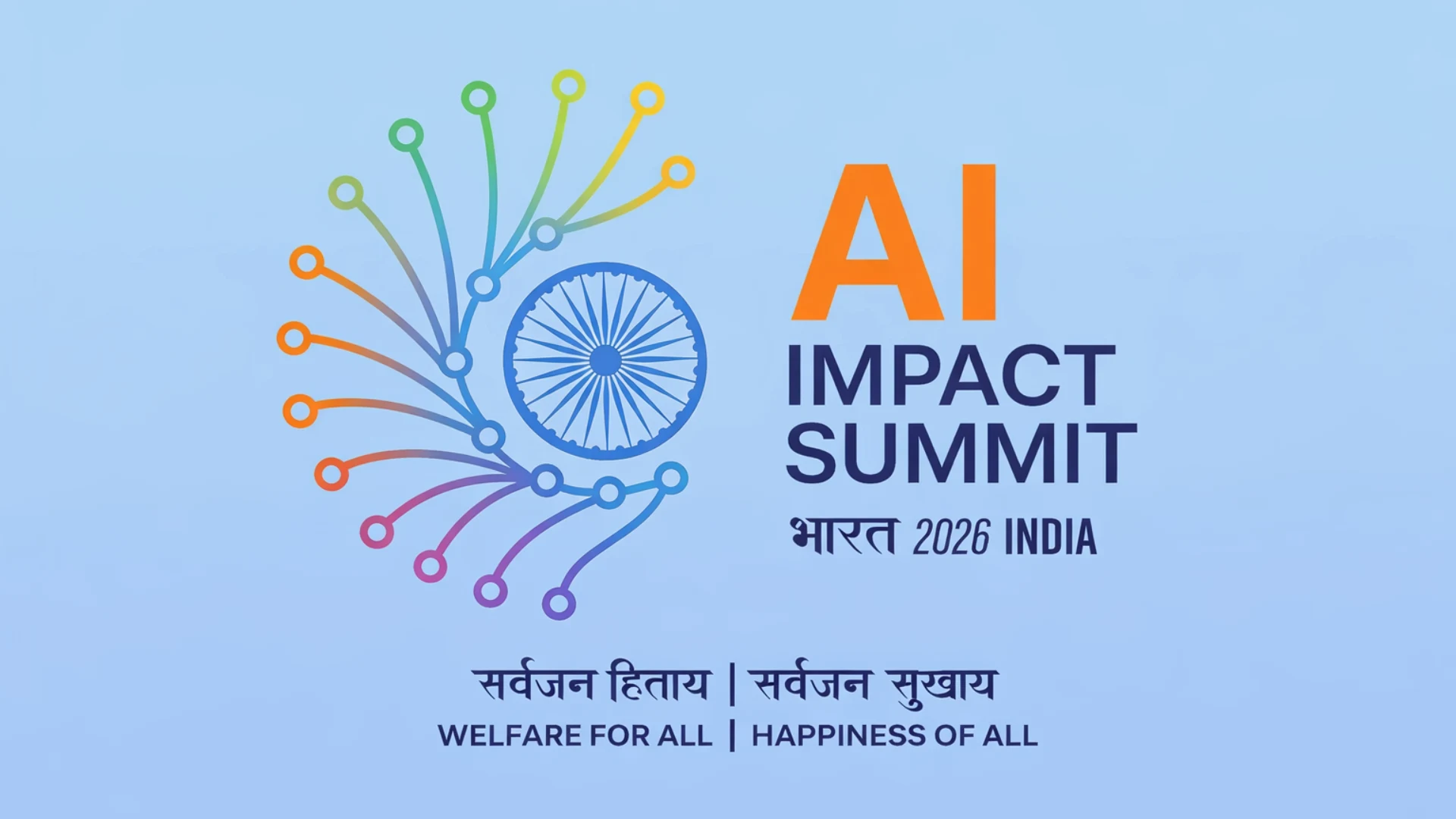Key Takeaways
- Blockchain governance determines how decisions are made within decentralized networks without central authority control.
- Two main governance models exist: on-chain governance with direct voting through smart contracts and off-chain governance through community discussions.
- Governance tokens give holders voting power on protocol changes, fund allocation, and network upgrades.
- Proper governance prevents network splits, resolves disputes fairly, and maintains security across the blockchain.
- Platforms like Ethereum, Tezos, and Polkadot use different governance structures suited to their specific needs.
When we talk about blockchain networks, most people think about cryptocurrencies or smart contracts. But there is something equally important that keeps these networks running properly. That something is governance. Without a proper governance structure, even the most advanced blockchain would struggle to evolve, fix problems, or meet the needs of its users.
Think about it this way. A blockchain network involves thousands of participants spread across the globe. They all have different ideas about what the network should do and how it should work. Governance provides the rules and processes that help everyone agree on the path forward. It is the backbone that keeps decentralized systems functional and fair.
If you want to understand how blockchain technology works at a deeper level, governance is a topic you cannot ignore. Let us explore what blockchain governance actually means and why it matters so much for decentralized networks.
What Exactly is Blockchain Governance?
Blockchain governance refers to the systems and processes through which decisions are made about a blockchain network. Unlike traditional organizations where a board of directors or CEO makes the final call, blockchain networks distribute this decision-making power among their participants.
This includes decisions about protocol upgrades, security improvements, fee structures, and how the network should respond to technical challenges. According to Wikipedia, blockchain governance encompasses all the mechanisms that allow stakeholders to coordinate and make collective decisions about the future of a network.
The governance process typically involves three main activities. First, there is proposal creation where someone suggests a change or improvement. Second, there is discussion where the community debates the merits of that proposal. Third, there is voting or consensus-building where participants decide whether to implement the change.
What makes blockchain governance unique is its transparency. Every proposal, every vote, and every decision can be tracked and verified by anyone. This openness builds trust among network participants because no one can manipulate the process behind closed doors.
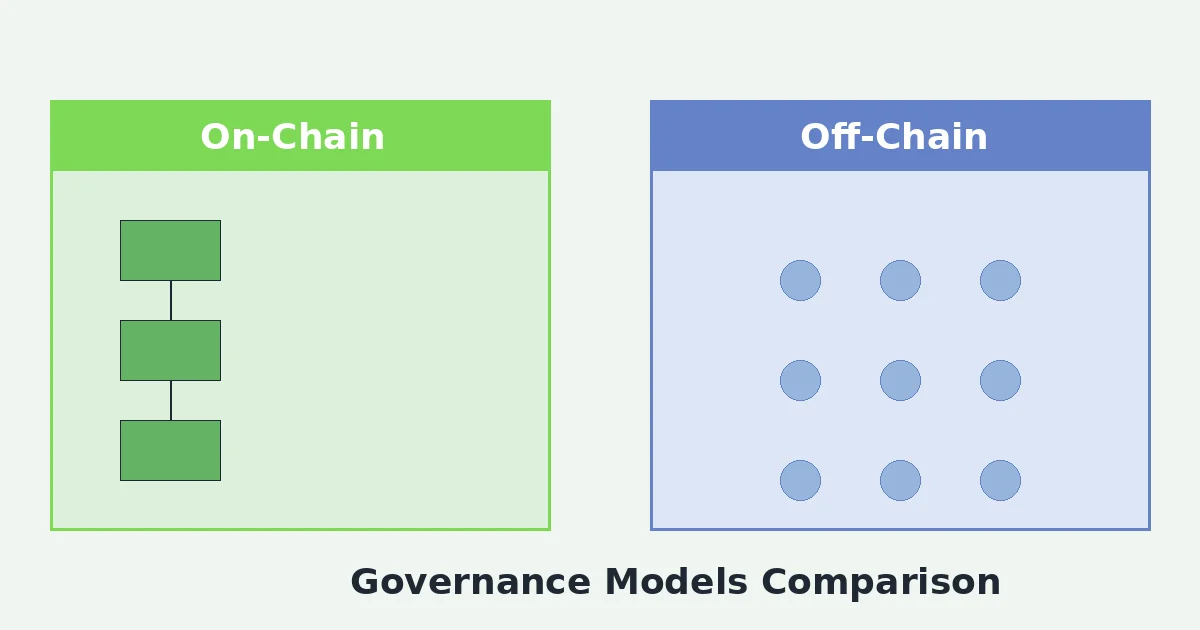
On-Chain vs Off-Chain Governance: Understanding the Difference
Blockchain governance comes in two main flavors. Each approach has its own strengths and weaknesses, and many successful networks actually use a combination of both.
On-chain governance happens directly on the blockchain itself. Votes are cast through smart contracts, and approved changes are automatically implemented into the protocol. This approach offers complete transparency and removes the need for trusted intermediaries to count votes or implement decisions.
Off-chain governance takes place outside the blockchain. This includes discussions on forums, social media debates, developer meetings, and informal consensus-building. While less transparent than on-chain methods, off-chain governance allows for more nuanced discussions and faster decision-making in certain situations.
| Feature | On-Chain Governance | Off-Chain Governance |
|---|---|---|
| Transparency | Fully transparent and verifiable | Variable depending on platform |
| Speed | Slower due to voting periods | Can be faster for urgent decisions |
| Implementation | Automatic via smart contracts | Requires manual coordination |
| Flexibility | Limited by protocol rules | More room for nuanced discussion |
| Participation Barrier | Requires token ownership | Open to anyone with interest |
The Role of Governance Tokens in Decision Making
Governance tokens are the voting currency of blockchain networks. When you hold governance tokens, you gain the right to participate in decisions that shape the future of that network. The more tokens you hold, the more voting power you typically have.
These tokens represent more than just voting rights though. They align the interests of token holders with the long-term success of the network. If you own governance tokens, you have a financial incentive to vote for changes that will make the network more valuable and useful.
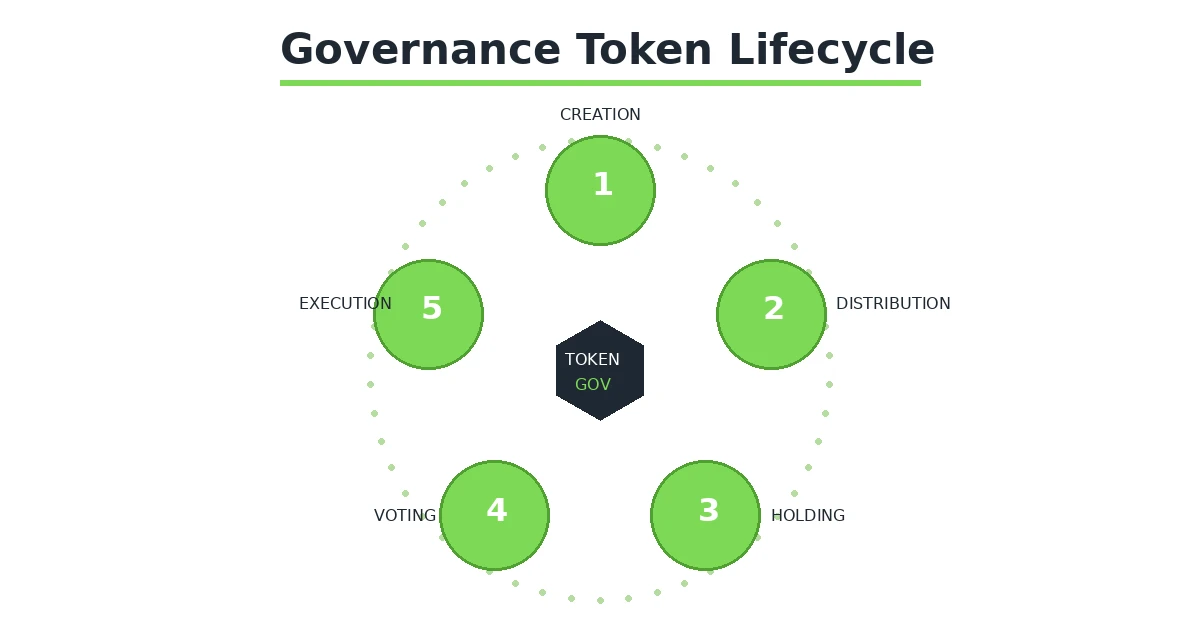
The lifecycle of governance tokens typically follows a pattern. Tokens are created during the initial launch of a project. They are then distributed to early supporters, developers, and community members. Once distributed, token holders can use them to vote on proposals. After implementation of approved changes, the community provides feedback, which may lead to new proposals.
Understanding the history of blockchain helps explain why governance tokens became necessary. Early blockchain networks struggled with decision-making because there was no clear mechanism for reaching consensus on non-technical matters. Governance tokens solved this problem by creating a fair and transparent voting system.
Why Does Governance Matter for Network Security?
Security and governance are more connected than you might think. A blockchain with weak governance is vulnerable to attacks, disputes, and potentially catastrophic failures. Strong governance creates the framework needed to identify threats, respond to incidents, and implement protective measures.
When security vulnerabilities are discovered, governance processes determine how quickly and effectively the network can respond. Networks with efficient governance can push through emergency patches faster. Those with slow or contentious governance processes may leave vulnerabilities exposed for longer periods.
Governance also prevents the concentration of power that could threaten network security. By distributing decision-making authority among many participants, governance structures make it much harder for any single entity to compromise the network for personal gain.
Consider what happened with various blockchain networks that experienced contentious hard forks. Poor governance mechanisms contributed to community splits that weakened both resulting networks. Better governance could have prevented these splits by providing legitimate channels for resolving disputes.
Real Examples of Blockchain Governance in Action
Different blockchain networks have implemented governance in different ways. Looking at these examples helps us understand what works and what challenges remain unsolved.
Ethereum uses a combination approach. Technical changes go through the Ethereum Improvement Proposal process where developers suggest changes, the community discusses them, and core developers decide what gets implemented. This off-chain process has worked reasonably well, though it has faced criticism for being slow and sometimes opaque.
Tezos took a different path with formal on-chain governance. Token holders vote directly on protocol upgrades, and approved changes are automatically implemented. This approach has allowed Tezos to upgrade smoothly without the contentious hard forks that have plagued other networks.
Polkadot features a sophisticated governance system with multiple layers. There is a council elected by token holders, a technical committee for urgent matters, and public referenda for major decisions. This complexity allows for nuanced decision-making but can be harder for casual participants to understand.
| Platform | Governance Type | Key Features | Upgrade Method |
|---|---|---|---|
| Ethereum | Off-chain focused | EIP process, core developer calls | Hard forks |
| Tezos | On-chain formal | Direct token voting, self-amendment | Automatic |
| Polkadot | Multi-layer hybrid | Council, technical committee, referenda | Forkless upgrades |
| MakerDAO | DAO governance | MKR token voting, executive votes | Smart contract updates |
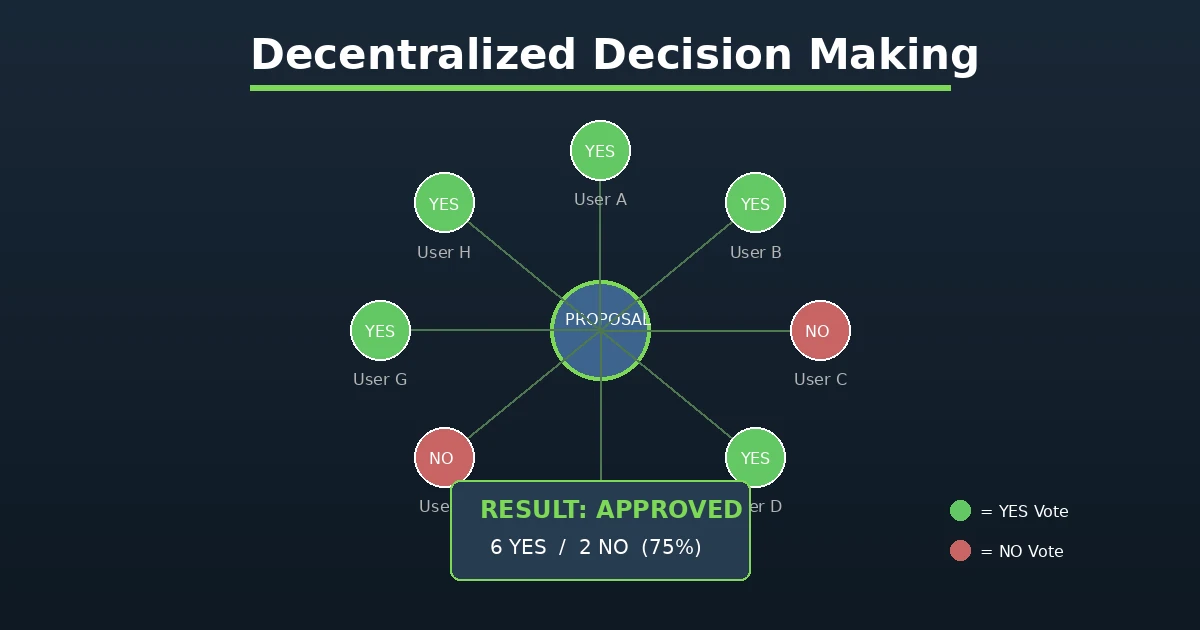
Common Challenges in Blockchain Governance
Despite its importance, blockchain governance is not without problems. Several challenges continue to plague even the most well-designed systems.
Voter apathy is perhaps the most widespread issue. Many token holders simply do not participate in governance votes. They may not have time to research proposals, may not understand the technical details, or may simply not care enough to vote. Low participation rates can undermine the legitimacy of governance decisions.
Whale dominance presents another problem. When a small number of large token holders control most of the voting power, governance can become plutocratic rather than democratic. These whales may push through changes that benefit themselves at the expense of smaller participants.
Technical complexity makes governance inaccessible to average users. Many proposals involve deep technical details that require specialized knowledge to evaluate properly. This creates a barrier to meaningful participation for non-technical community members.
Coordination difficulties arise when governance processes span multiple time zones and languages. Getting global communities to participate in discussions and votes within reasonable timeframes is genuinely hard.
Build Your Blockchain Governance System
Need expert guidance on implementing governance for your blockchain project? Get professional consultation on token design, voting mechanisms, and community engagement strategies.
How DAOs Are Changing Governance Structures
Decentralized Autonomous Organizations represent the next evolution in blockchain governance. DAOs are organizations where governance rules are encoded in smart contracts and executed automatically based on member votes.
Unlike traditional governance systems where proposals must be manually implemented after approval, DAOs can execute decisions automatically. If the community votes to allocate funds to a specific project, the smart contract releases those funds without any human intermediary.
This automation removes a significant trust barrier. Members do not need to trust anyone to faithfully implement governance decisions. The code ensures that approved proposals are executed exactly as specified.
DAOs also enable more granular participation. Members can vote on individual proposals rather than electing representatives to make decisions on their behalf. This direct democracy approach gives every token holder a voice in specific decisions that affect them.
However, DAOs face their own challenges. Smart contract bugs can lead to governance failures. The DAO hack of 2016 demonstrated how vulnerabilities in governance code could result in massive financial losses. Building secure DAO systems requires exceptional technical expertise.
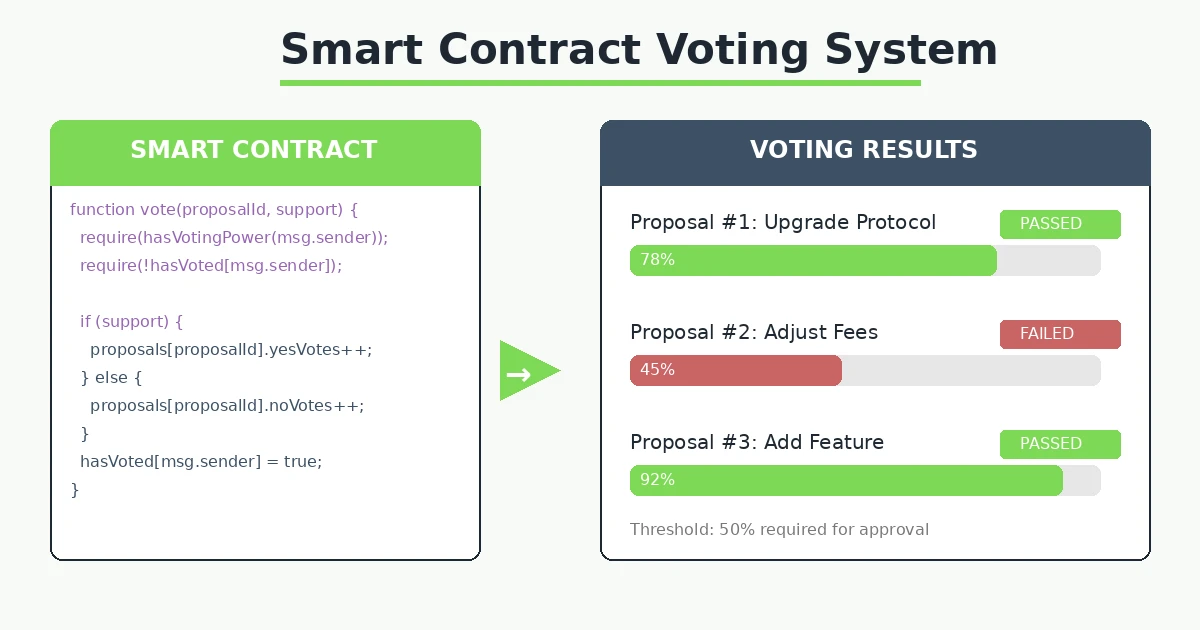
The Impact of Governance on Network Evolution
How a blockchain network governs itself directly determines how it evolves over time. Networks with effective governance can adapt to changing conditions, implement new features, and fix problems quickly. Those with dysfunctional governance often stagnate or splinter into competing factions.
Consider the importance of upgrade mechanisms. Technology evolves rapidly, and blockchain networks must evolve with it to remain relevant. Governance provides the legitimate process through which these upgrades can be proposed, debated, and implemented.
Governance also affects how networks respond to external challenges. Regulatory changes, security threats, and competitive pressures all require coordinated responses. Networks with strong governance can mobilize their communities to address these challenges effectively.
The relationship works both ways. As networks grow and change, their governance systems often need to evolve as well. What works for a small network of early adopters may not work for a large network with millions of participants. Successful networks continuously refine their governance processes based on experience.
Why Professional Guidance Matters for Governance Design
Designing a governance system for a blockchain project is not something to approach casually. Poor governance design can doom a project from the start, while thoughtful governance can provide a sustainable foundation for long-term success.
This is where experienced blockchain development partners become valuable. Nadcab Labs, with over 8 years of experience in blockchain development, has helped numerous projects design and implement governance systems that actually work.
The team at Nadcab Labs understands that governance is not a one-size-fits-all solution. They work closely with project teams to understand their specific needs, community dynamics, and long-term goals before recommending governance structures.
Their expertise covers the full spectrum of governance considerations. This includes token economics design, voting mechanism selection, proposal lifecycle management, dispute resolution processes, and community engagement strategies. They have seen what works and what fails across dozens of different projects.
What sets experienced developers apart is their understanding of edge cases. They know what happens when vote counts are tied, when malicious proposals are submitted, when participation drops, or when urgent changes are needed. These scenarios are hard to anticipate without real-world experience.
Best Practices for Implementing Blockchain Governance
Based on lessons learned from various blockchain projects, certain practices consistently lead to better governance outcomes.
Start with clear documentation. Every participant should understand how governance works, what they can vote on, and how decisions are made. Ambiguity breeds conflict, so clarity is essential.
Build in flexibility. Governance systems should be able to evolve as the network grows and circumstances change. Rigid systems that cannot adapt will eventually become obstacles rather than enablers.
Encourage participation through multiple channels. Not everyone will participate in on-chain voting, so provide forums, social media, and other channels for discussion. The goal is to gather input from as many stakeholders as possible.
Test governance mechanisms thoroughly before launch. Simulate edge cases, stress test voting systems, and ensure that smart contracts behave correctly under all conditions. Governance failures after launch are much harder to fix.
| Best Practice | Why It Matters | Implementation Tips |
|---|---|---|
| Clear Documentation | Reduces confusion and disputes | Create governance guides in multiple languages |
| Gradual Decentralization | Allows learning and adjustment | Start with limited voting, expand over time |
| Multi-Sig Security | Prevents single points of failure | Require multiple signatures for major changes |
| Emergency Procedures | Enables fast response to crises | Define clear escalation paths for urgent issues |
| Regular Review Cycles | Keeps governance relevant | Schedule quarterly governance assessments |
Looking Ahead: The Future of Blockchain Governance
Blockchain governance continues to evolve as networks mature and communities gain experience. Several trends are shaping the future of how decentralized networks make decisions.
Quadratic voting is gaining attention as a way to balance voting power more fairly. Instead of one-token-one-vote, quadratic voting makes each additional vote progressively more expensive. This reduces the influence of large token holders and amplifies the voices of smaller participants.
Delegation mechanisms are becoming more sophisticated. Many token holders want to participate in governance but lack time to research every proposal. Delegation allows them to assign their voting power to trusted representatives who will vote on their behalf.
Cross-chain governance is emerging as networks become more interconnected. Decisions made on one blockchain may affect connected chains, requiring new governance mechanisms that span multiple networks.
Identity solutions may eventually help address some governance challenges. Verifying that each participant is a unique human could reduce manipulation and enable more democratic voting structures that are not purely plutocratic.
Conclusion
Blockchain governance is far more than a technical detail. It is the foundation that determines whether decentralized networks can survive, grow, and adapt over time. Without effective governance, even the most innovative blockchain technology will struggle to achieve its potential.
The challenges are real. Voter apathy, whale dominance, technical complexity, and coordination difficulties all make governance hard. But projects that invest in thoughtful governance design position themselves for long-term success.
Whether you are building a new blockchain project or looking to improve governance in an existing network, professional guidance can make a significant difference. The team at Nadcab Labs brings over 8 years of hands-on experience to governance challenges, helping projects find solutions that work for their specific circumstances.
Understanding governance is not optional for anyone serious about blockchain technology. It is the mechanism through which decentralized networks remain decentralized while still moving forward. Get it right, and your network can thrive for years to come.
Frequently Asked Questions
Traditional corporate governance relies on a board of directors and executives who make decisions on behalf of shareholders. Blockchain governance distributes decision-making power among all token holders or network participants. Decisions are made through transparent voting processes rather than behind closed boardroom doors. Anyone can propose changes, and the community collectively decides what gets implemented. This approach removes the need for trusted intermediaries and creates a more democratic system where every participant has a voice proportional to their stake in the network.
Governance tokens derive value from the voting rights and decision-making power they provide. The more important and valuable a blockchain network becomes, the more valuable the ability to influence its direction becomes. Token prices are affected by network usage, total value locked in the protocol, the quality of governance decisions made, and overall market conditions. Some governance tokens also provide additional benefits like fee sharing or staking rewards, which adds to their value proposition beyond pure voting rights.
Well-designed governance can significantly reduce the likelihood of contentious hard forks by providing legitimate channels for resolving disputes before they escalate. When community members feel their voices are heard through proper governance processes, they are less likely to pursue drastic measures like creating competing chains. However, governance cannot completely eliminate the possibility of forks. If disagreements are fundamental enough, some participants may still choose to fork regardless of governance outcomes. The goal is to make forks unnecessary rather than impossible.
Most blockchain governance systems include provisions for emergency situations that require faster action than normal voting periods allow. These might include trusted security councils with authority to implement emergency patches, time-locked multi-signature wallets that can bypass normal governance for critical fixes, or expedited voting procedures with reduced quorum requirements for security matters. The key is balancing the need for fast response with the principle of decentralized decision-making, typically by limiting emergency powers to narrowly defined security scenarios.
Small token holders can maximize their governance impact through several strategies. Delegation allows them to pool voting power with like-minded participants or trusted representatives. Many DAOs have forums and discussion channels where anyone can contribute ideas regardless of token holdings. Some governance systems use quadratic voting or conviction voting mechanisms that reduce the dominance of large holders. Participating actively in discussions and building reputation within the community can also increase influence beyond what raw token numbers would suggest.
Smart contracts serve as the automated backbone of on-chain governance systems. They manage the entire proposal lifecycle from submission through voting to implementation. When someone creates a governance proposal, a smart contract records it on the blockchain. During voting periods, the contract tracks and tallies votes according to predefined rules. Once voting concludes, the contract can automatically execute approved changes without human intervention. This automation ensures that governance decisions are implemented exactly as specified and removes the possibility of tampering or selective enforcement of community decisions.
Reviewed & Edited By

Aman Vaths
Founder of Nadcab Labs
Aman Vaths is the Founder & CTO of Nadcab Labs, a global digital engineering company delivering enterprise-grade solutions across AI, Web3, Blockchain, Big Data, Cloud, Cybersecurity, and Modern Application Development. With deep technical leadership and product innovation experience, Aman has positioned Nadcab Labs as one of the most advanced engineering companies driving the next era of intelligent, secure, and scalable software systems. Under his leadership, Nadcab Labs has built 2,000+ global projects across sectors including fintech, banking, healthcare, real estate, logistics, gaming, manufacturing, and next-generation DePIN networks. Aman’s strength lies in architecting high-performance systems, end-to-end platform engineering, and designing enterprise solutions that operate at global scale.





